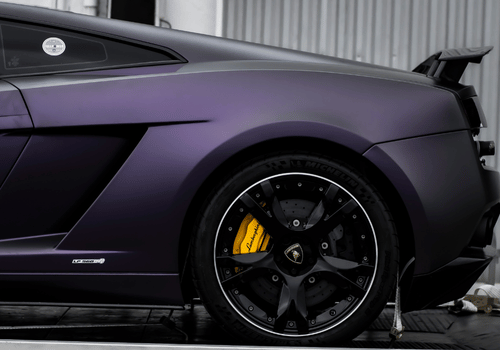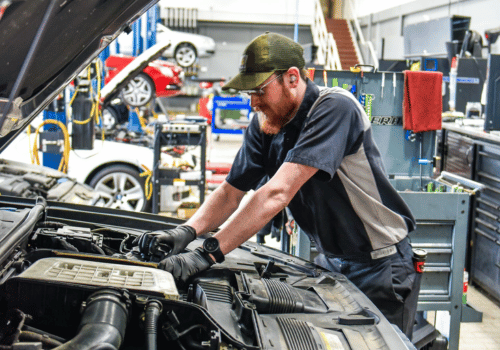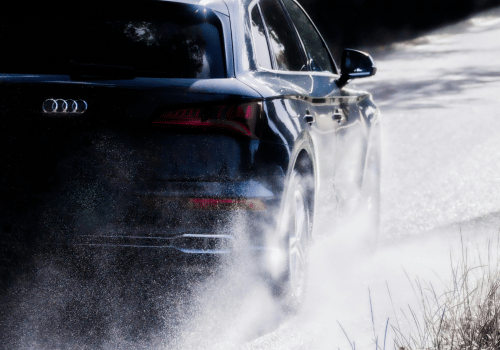Why Do Sports Cars Have Stiff Suspension?

If you’ve ever had the thrill of driving a sports car or even just ridden in one, you might have noticed something about the ride—it’s not exactly relaxing. Unlike a luxury sedan's soft, smooth ride, sports cars are known for their stiff suspension. But why is this? Why do manufacturers go to such lengths to ensure that these cars feel every bump and dip in the road? The answer lies in the unique purpose of sports cars and how their design is optimized for performance, handling, and driver experience.
The Purpose Behind Stiff Suspension
The primary reason sports cars have stiff suspension is to enhance their performance. Unlike everyday vehicles that prioritize comfort and convenience, sports cars are built with speed, agility, and handling in mind. A stiff suspension plays a crucial role in achieving these goals, providing the stability and control needed for high-speed driving and precision cornering.
- Improved Handling and Stability
One of the most significant benefits of stiff suspension is improved handling. When a car’s suspension is stiffer, it reduces the amount of body roll during cornering. Body roll occurs when the car’s weight shifts to one side while taking a turn, which can negatively impact stability and control. In a sports car, minimizing body roll is essential to ensure that the tires maintain maximum contact with the road, providing better grip and allowing the driver to take corners at higher speeds with confidence. - Enhanced Road Feedback
Another reason for stiff suspension in sports cars is to provide the driver with better road feedback. Road feedback refers to the information that the driver feels through the steering wheel and the seat about the road surface. In high-performance driving, understanding the nuances of the road is critical. A stiffer suspension transmits more of the road’s texture and imperfections to the driver, allowing for more precise control over the vehicle. While this might make the ride less comfortable, it significantly enhances the driving experience, especially for those who enjoy the tactile connection between the car and the road.
The Physics of Stiff Suspension
To fully understand why sports cars have stiff suspension, it’s helpful to look at the physics behind it. When a car accelerates, brakes, or turns, forces are exerted on its suspension system. The suspension’s job is to manage these forces and keep the car balanced.
- Weight Transfer and Cornering
During cornering, a car’s weight shifts to the outside wheels, which can cause the vehicle to lean or roll. A softer suspension would allow more weight transfer, increasing the likelihood of losing traction and potentially causing the car to understeer or oversteer. Stiff suspension limits this weight transfer, keeping the car more level and stable, which is crucial for maintaining control at high speeds. - The Role of Damping and Springs
Suspension systems are made up of springs and dampers (shock absorbers). The stiffness of the suspension is determined by the spring rate (how much the spring resists compression) and the damping rate (how much resistance the shock absorber provides). In sports cars, both the springs and dampers are usually firmer, allowing the suspension to absorb and respond to road forces quickly. This setup is ideal for performance driving but can make the ride feel harsh on uneven or rough surfaces.
Trade-offs of Stiff Suspension
While stiff suspension is excellent for handling and road feedback, it does come with trade-offs, especially in terms of comfort and practicality.
- Reduced Comfort
The most noticeable downside of stiff suspension is the reduction in ride comfort. Sports cars with firm suspensions can feel jarring over rough roads, potholes, or uneven surfaces. This is because the suspension doesn’t absorb the impact as effectively as a softer setup, transmitting more shock and vibration to the cabin. For daily driving, especially on imperfect roads, this can make the ride less enjoyable for passengers who prioritize comfort. - Wear and Tear on Components
Another consideration is that stiffer suspension can lead to increased wear and tear on both the car and the road. The suspension’s rigidity means that it doesn’t absorb as much of the impact from bumps and dips, which can cause more stress on the car’s chassis and suspension components over time. Additionally, the reduced shock absorption can lead to faster degradation of road surfaces, as the car’s tires exert more force on the pavement.
Why Stiff Suspension Is Still Worth It
Despite the trade-offs, stiff suspension's benefits make it a key feature in sports cars. For drivers who value performance, the enhanced handling, stability, and road feedback far outweigh the downsides of a firmer ride. Whether on a racetrack or a winding mountain road, the precise control provided by stiff suspension allows sports cars to perform at their best, delivering a driving experience that’s both exhilarating and rewarding.
Is Stiff Suspension Right for You?
While stiff suspension is ideal for sports cars and performance enthusiasts, it might not be the best choice for everyone. If you’re considering a sports car, it’s important to weigh the benefits of superior handling against the potential drawbacks of reduced comfort. A softer suspension might be more practical for those who primarily drive in urban environments with rough roads. However, if you crave the thrill of precision driving and don’t mind sacrificing a bit of comfort, a sports car with stiff suspension could be exactly what you’re looking for.
Ready to experience the thrill of a well-tuned sports car? Visit Eurotech Auto Service today for expert suspension inspections and adjustments to ensure your car handles like a dream. Book your appointment now!










